TÈCNICS/QUES
L’equip del LET el formen investigadors i tècnics de l’Institut d’Estudis Regionals i Metropolitans de Barcelona (IERMB) i del Centre de Recerca Ecològica i Aplicacions Forestals (CREAF), investigadors post-doctorals i pre-doctorals vinculats al LET, i investigadors associats procedents d’altres institucions que col·laboren en projectes específics.
DIRECTION
Joan Pino
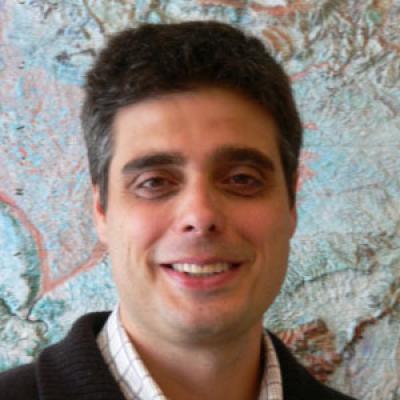
Joan Pino
Doctor in Biology and Master’s Degree in Geographic Information Technology. Since 2006 he has been a professor of Ecology at the Autonomous University of Barcelona and since 1997 he has been a CREAF researcher. He has published more than 80 scientific publications, including articles in journals of high international impact, other journals and book chapters. His research focuses on landscape ecology, especially on the links between structure and dynamics of landscapes with the richness and composition of biodiversity, and the implications of these results for territorial planning. He also works on the ecology of biological invasions, particularly in the analysis of the invasive capacity of species and the risk of invasion of territories and habitats. In all these lines of research, he has applied a spatially explicit perspective that includes the generation and analysis of cartography in digital format. He coordinates several databases of biodiversity and series of historical cartography.
POSTDOCTORAL RESEARCHERS
Yolanda Melero

Yolanda Melero
Doctor in biology for the University of Barcelona, and currently postdoctoral researcher at CREAF where she studies the effect of urban environments on metapopulational dynamics. The expected rise of built-up areas will cause an increase in functional distances and a decrease of biological connectivity among populations thus reducing their survival. Her research focuses on these effects and how different amounts and configurations of green areas in the metropolitan areas could improve the persistence and viability of populations. Previously, she worked on behavioural ecology at the University of Barcelona and on population dynamics at low densities (compensation and Allee effects) at the University of Aberdeen.
Tarik Serrano
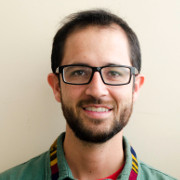
Tarik Serrano
PhD in Environmental Sciences, MsC in Ecological Economics and currently research technician in the area of Ecology and Territory at the IERMB. His research topics have focused in the development of analytical methods using the Multi-Scale Integrated Analisis of Societal and Ecosystem Metabolism (MuSIASEM). Specifically, Tarik worked on the analysis of the Water-Energy-Food Nexus, especially applied to rural systems, and incorporating Geographic Information System (GIS) tools. Tarik worked in projects studying different countries like India, Lao, Guatemala, USA, Ecuador and diverse European countries.
María José LaRota-Aguilera
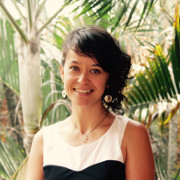
María José LaRota-Aguilera
Biologist and MsC in Geography from the University of Texas at Austin (USA). She is currently developing her doctoral research on Earth Ecology in the CREAF (Autonomous University of Barcelona). Her research interests focus on the study of the sustainability of socio-ecological systems on the agricultural frontier of the Cauca River Valley (Colombia), through an integrated analysis including methodologies from Landscape Ecology, Ecological Economics and Rural Sociology. During recent years, she worked with various rural social communities and processes in southwest Colombia, using Geographic Information Systems (GIS) for the strengthening of community processes of rural development and territorial planning in multicultural contexts.
Roser Rotchés
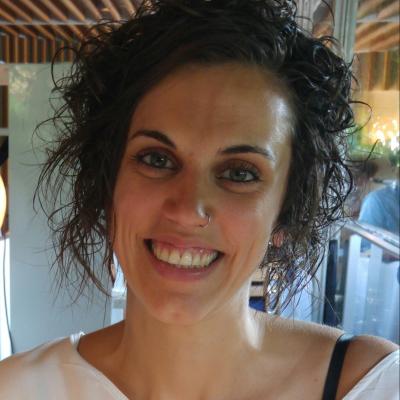
Roser Rotchés
I am graduate in Biology (UB, 2009), master in Biodiversity (UB, 2010) and PhD in biodiveristy and plant ecology (UB, 2015). My scientific career has been related with different aspects of biodiversity, plant ecology, landscape ecology and agroecology. My main interests lie in the study of the effects of land uses and landscape structure on biodiversity composition and functionality, as well as on the ecosystem services associated. Currently in the CREAF I work on the ecology of biological invasions and on the study of the role of different land uses and landscape structure on the introduction and establishment of exotic species. I coordinate the EXOCAT database and participate in the associated projects.
Jaime Vila
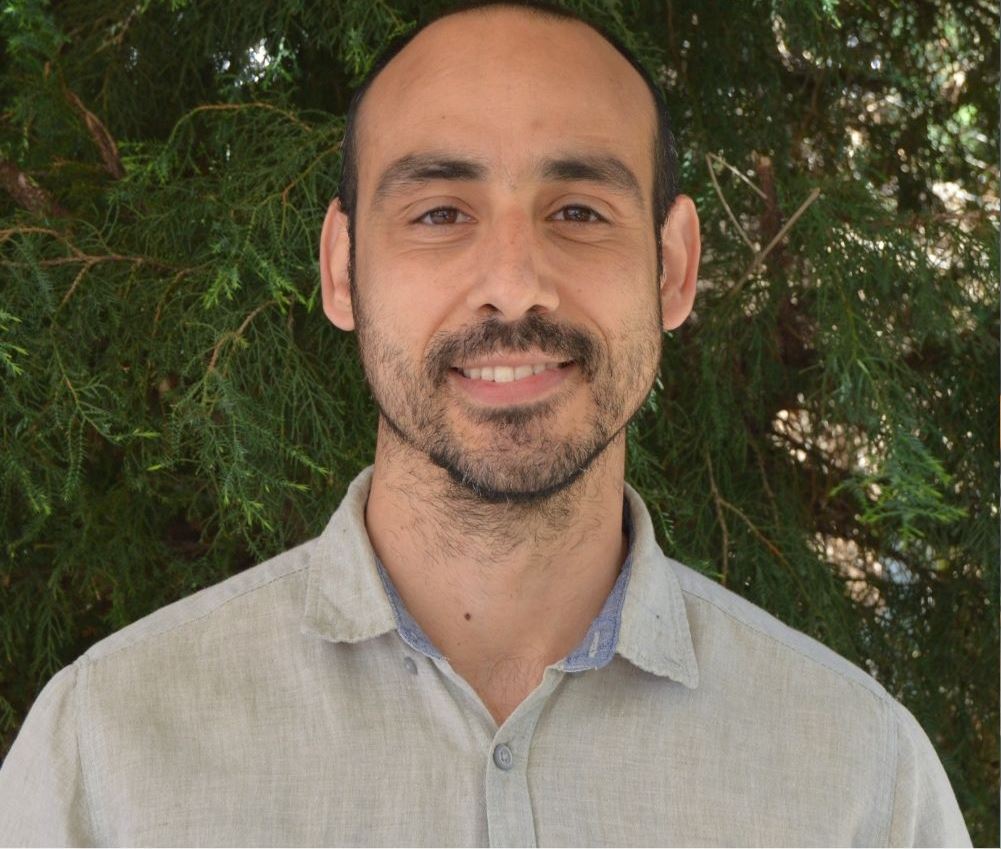
Jaime Vila
Postdoctoral research
Jaime Vila is a Forest Technical Engineer, with a degree in Environmental Sciences and a master’s degree in Agroecology. Currently, he is finishing his doctoral thesis related to the effect of the industrialization of agriculture on water flows in agroecosystems and climate change in Spain. He is especially interested in the modeling of complex, historical and future scenarios, with geographic information systems and long-term time series, which serve to guide the agroecological transition and the public policies that promote it. Jaime collaborates in different lines of research and projects of the LET, related to climate change, changes in the use of the sun, integrated socio-ecological analysis, monitoring of metropolitan biodiversity and improvement of urban forests.
PREDOCTORAL RESEARCHERS
Marta Elena Montaño
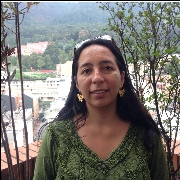
Marta Elena Montaño
Civil Engineer with master’s degree in Geography at Pedagogical and Technological University of Tunja – Colombia. Currently, she develops her doctoral studies on Ethnobiology and Biocultural Studies at the University of Cauca. Her research interests focus on the study of territorial sustainability in the indigenous territory of the Indigenous territory of Puracé (Colombia), through an integrated analysis that incorporates methodologies for the analysis of bio-cultural relations by linking concepts Andean philosophy, ethnobiology and landscape ecology. She has 20-year experience with indigenous communities and more than 8 years with rural and Afro communities, invested in generating environmental and productive processes that contribute to the construction of intercultural territories, for the survival andwell-being of communities.
Elena Louisa Alter
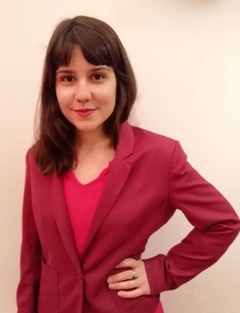
Elena Louisa Alter
Pre-doctoral researcher
Elena holds a bachelor’s degree in Environmental and Political Science and MSc in Human and Social Ecology from the Institute for Social Ecology Vienna (University of Klagenfurt). She is currently working for the International Research Project MA4SURE “Agroecosystems for Sustainability and Resilience under Climate Change” and is developing her doctoral research on Social Metabolism and Political Ecology at ICTA (Autonomous University of Barcelona). Her research interests focus on the study of the agroecological transition and sustainable agri-food systems in the Mediterranean, through an integrated socio-ecological analysis applying methods and concepts from Ecological Economics, Rural Sociology and Environmental Governance. Previously, she worked for an NGO in Berlin at the interface of European agricultural and trade policy, focusing on the new EU climate legislation and the effects of European industrial livestock production on climate change.
Alan Palacio

Alan Palacio
Alan Bernardo Palacio is a Data Scientist and Engineer with vast experience in different engineering fields. His focus has been the development and application of state-of-the-art data products and algorithms in several industries. He has worked for companies such as Ernst and Young, Globant, and now holds a Data Engineer position at Ebiquity Media helping the company to create a scalable data pipeline. Alan graduated with a Mechanical Engineering degree from the National University of Tucuman in 2015, participated as the founder in startups, and later on earned a Master’s degree from the faculty of Mathematics in the Autonomous University of Barcelona in 2017. Originally from Argentina, he now works and resides in the Netherlands.
Leonor Almenar
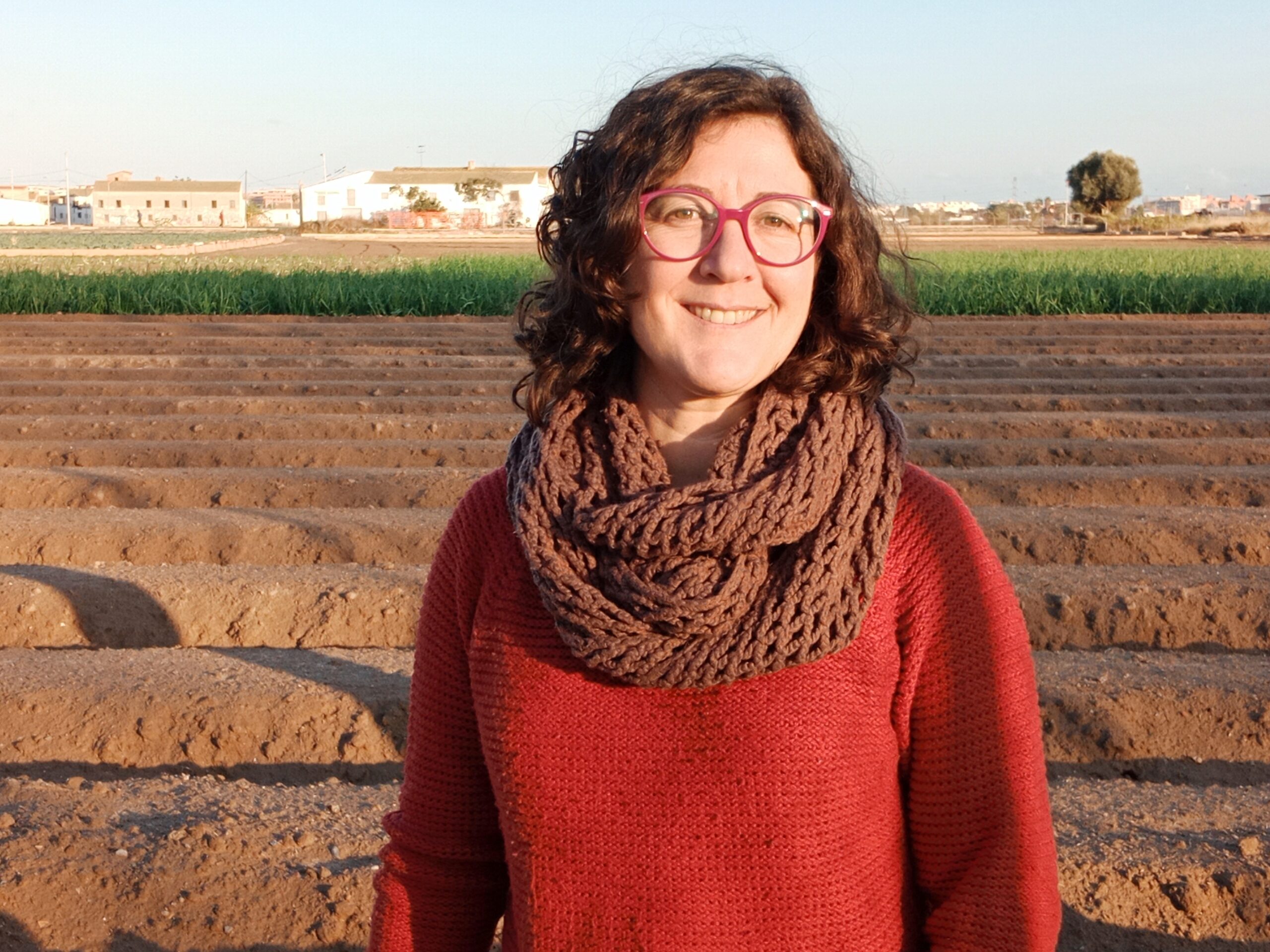
Leonor Almenar
Investigadora predoctoral
Leonor is an agronomist and agroecologist. Her career has focused on research and advice in various areas related to food production and distribution in the organic sector, always thinking about strategies for more sustainable agri-food systems. She has worked as a project manager or research assistant at the Spanish Society for Organic Farming and Agroecology, the UMH Agrocomposting project, in biological pest control studies at the UIB and IVIA, implementing the Agrarian Development Plan of the Horta of Valencia, as well as teacher and independent consultant. At Let she takes part as predoctoral researcher in the project “Agroecoscaling. Boosting ecological transition: Scaling up best agroecological practices from farms to landscapes and agri-food chain”. Her research focus is on assessing actual local food systems in terms of agricultural metabolism and territorial analysis at landscape scale and simulating possible future scenarios through socio-ecological integrated analysis. This assessment aims to be a tool for designing and implementing measures that promote agroecological transition at the level of local and short agri-food chains to address current climate, environmental and socio-economic challenges.
ASSOCIATED RESEARCHERS
Raúl Velasco-Fernández
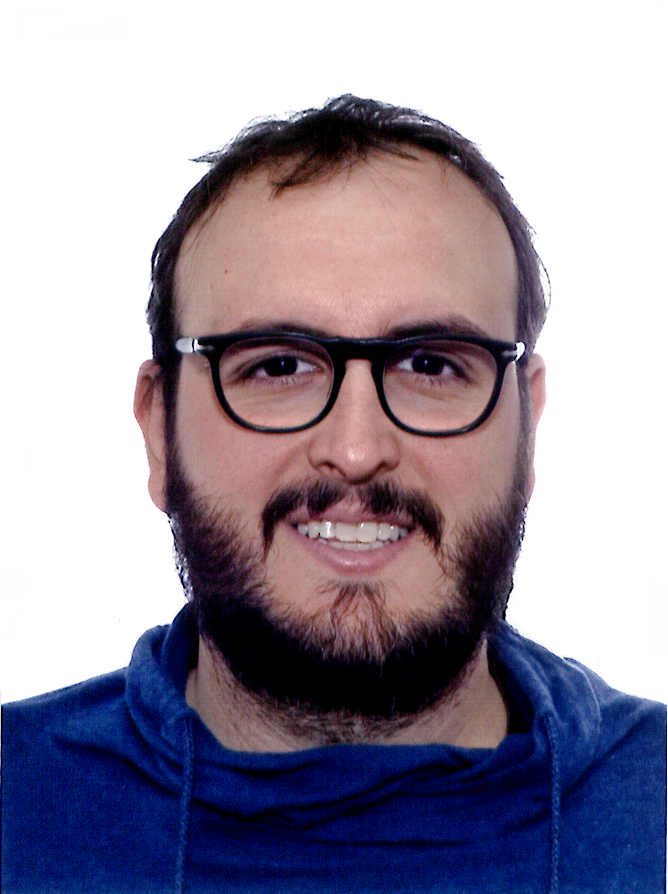
Raúl Velasco-Fernández
Industrial Engineer (UPC, 2008), Sociologist (UB, 2012) and PhD in Environmental Sciences (UAB, 2017). He currently works as a researcher at the Institute of Regional and Metropolitan Studies of Barcelona, developing new tools for analysis and decision support in planning. During the last years he has worked developing the Multi-Scale Integrated Analysis of Societal and Ecosystem Metabolism (MuSIASEM) and its application to the analysis of sustainable development policies of the European Commission in different European projects (MAGIC, EUFORIE and NETEP). His research has focused on the study of the role of energy in the development of societies, the international division of labor and its relationship with other biophysical aspects such as human activity, greenhouse emissions, land use and materials.
Claudio Cattaneo
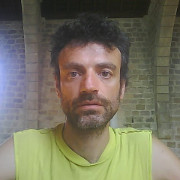
Claudio Cattaneo
He holds a PhD in Environmental Science, is associate professor of Ecological Economics at the Autonomous University of Barcelona and director of the ICTA-UAB master in Political Ecology, Degrowth and Environmental Justice. He is member of “Research and Degrowth” and of the Can Masdeu eco-community, in the hills of Barcelona. His research interests are related to social metabolism, agroecology, energy-landscape integrated analysis and analysis of the squatters movement. He his author of several papers in peer-reviewed journals, book chapters and editor of the book “The Squatters Movement in Europe, Pluto Press”. He has a 15 year teaching experience in Ecological Economics.
Vittorio Galletto
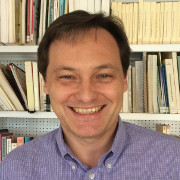
Vittorio Galletto
Degree in Economics from the Autonomous University of Barcelona (UAB, 1996). Master in Applied Economics (UAB, 1999) and PhD in Economics (UAB, 2014). The areas in which he works are the regional and urban economy, local production systems and innovation. Before joining the IERMB, he worked at the Department of Applied Economics at the UAB as associate professor and researcher. He has also worked in the private sector in consulting companies carrying out local economic development projects for different city councils and other public institutions. Since July 2009, he has been part of the team of the Institute of Regional and Metropolitan Studies of Barcelona as a researcher and since 2011 he is the Head of Regional and Urban Economic Department.
Cristina Madrid
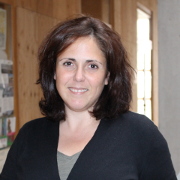
Cristina Madrid
PhD in Environmental Sciences and Management. Researcher at the Institute for Environmental Science and Technology, ICTA-UAB and former Marie Curie Fellow at Yale University. Her research focusses on the participatory assessment of political strategies and technological innovations as tools for the ecological transition, with emphasis on those that influence the water and the WEF nexus. Currently she is working on the integration of methods like Life Cycle Assessment and institutional analysis within the MuSIASEM framework in urban settlements and for the EU energy transition. Her analyses are developed with open source software like QGIS, OpenLCA, Python and R.
Roc Padró
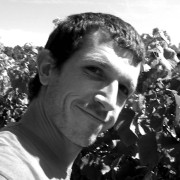
Roc Padró
Forest Engineer, Doctor in Economic History from the University of Barcelona and technician of the Advisory Council for Sustainable Development (CADS) of the Government of Catalonia. During the last years he has been developing socio-ecological modeling of agro-ecosystems, particularly in the creation of optimization scenarios with non-linear programming under the framework of Ecological Economy. His research has mainly focused on the field of agrarian relations between society-nature, green infrastructure and ecosystem services for territorial planning, both from a historical and prospective perspective. He collaborates with the Metropolitan Laboratory of Ecology and Territory of Barcelona (LET), of which he was an active part in its creation between 2018 and 2020.
Sergio Porcel
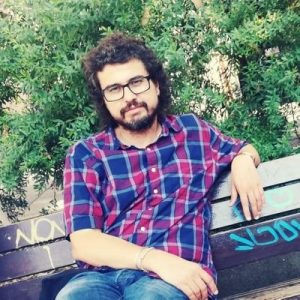
Sergio Porcel
Doctor in Sociology (Autonomous University of Barcelona, 2016), Master in Applied Social Research Techniques (Autonomous University of Barcelona and University of Barcelona, 2005) and Degree in Political Science and Sociology (University of Granada, 2002). His lines of research focus mainly on the field of urban sociology, the study of social stratification, inequality and poverty, and social research methods. Since 2005 he has been working as a researcher at the Institute of Regional and Metropolitan Studies of Barcelona, where he directs the Area of Social and Urban Cohesion. He is also part of the research group “Territory, Population and Citizenship” (TERRIPOC) of the University of Barcelona.
TECHNICIANS
Francesc Coll
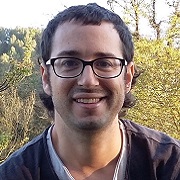
Francesc Coll
Degree in Geography in the Autonomous University of Barcelona (2005) and MsC in Geographic Information Technology (2007) at the Geographical Information and Remote Sensing Laboratory (LIGIT) also at the Autonomous University of Barcelona. He has worked on spatial analysis, mapping, digitization and photointerpretation, maintenance of databases and cartographic databases, providing technical support to the different projects of the IERMB. He has been part of the IERMB team since 2007 and is currently responsible for the area of cartography.
Javier Gordillo
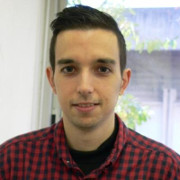
Javier Gordillo
Geographer from the University of Valencia (2014) and Master’s Degree in GIS and Remote Sensing from the Autonomous University of Barcelona (2015). I started my career collaborating with the VVSIG network of the MATRIX Foundation in the elaboration of a semi-automatic method to generate geomorphological maps from a Topographic Index Index. I have also participated in several projects of collaborative cartography in free environments such as OpenStreetmap. Since the end of 2015 I have been responsible for the maintenance of databases, digitization and mapping for different projects within the CREAF as a specialist in GIS and spatial databases. From 2017 my focus has been on mapping work focused on the area of territorial planning: I have worked on the quantification and mapping of biodiversity, ecosystem functions and services throughout Catalonia and I have participated in the updating and refinement of the Terrestrial Connectivity Index (ICT) in the Metropolitan Area of Barcelona in the framework of the Urban Planning Plan.
Pau Guzmán
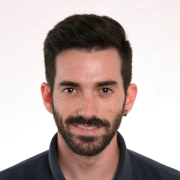
Pau Guzmán
Tècnic
Environmental biologist (UAB, 2016), superior technician in management and organization of natural and landscape resources (Rubió i Tudurí, 2011) and master degree in scientific and environmental communication (UPF-BSM, 2017). My professional career has been focused on scientific popularization. Since 2016 I have been part of the Communication team of the ecology research center CREAF, linked to different citizen science and biodiversity projects, such as Natusfera, AlertForestal and LiquenCity, as well as taking on institutional communication tasks at the center. Currently I carry out the communication activities of the RitmeNatura-PhenoTandem and mBMS citizen observatories, and I am part of the LET team assuming communication tasks.
Manel Pons
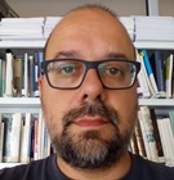
Manel Pons
Master’s Degree in Statistics (UPC, 2012), Bachelor’s Degree in Research and Market Techniques (UB, 2006), Diploma in Statistics (UB, 2002). Since 2002, he is researcher at the IERMB and since 2008 he has been an associate professor at the University of Barcelona within the Department of Applied Economics of the Department of Econometrics, Statistics and Spanish Economy. Specialist in the techniques of gathering, quality, management and analysis of data and information through multivariate techniques.
Daniel Martínez
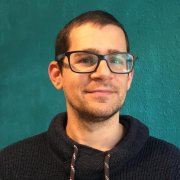
Daniel Martínez
Tècnic
Technical Engineer in Computer Systems (UPC). His career since the beginning has been related to the field of education and biology (Botanical-online). Using the new technologies to carry out the transfer of knowledge to the general public. With graphic design training, experience in the private environment and focused on the web ecosystem as a communicative pillar since the beginning of 2000. Currently responsible for computer systems of the IERMB.
Ignacio Ferrero
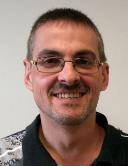
Ignacio Ferrero
Tècnic
ADVISORY BOARD
Carles Castell
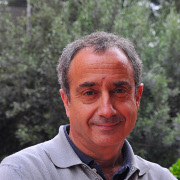
Carles Castell
Doctor in Biology, Master in Environmental Management in the Rural Areas and Master in Management. He was a researcher at the UAB and at the CREAF on Mediterranean ecosystems. He developed research in the Provincial Council of Barcelona in analysis, planning, management and monitoring programs in protected natural areas. He was Head of the Territorial Planning Office and is currently the Head of External Collaboration. He has published scientific and informative books, scientific articles and collaborates in postgraduate courses. He presided EUROPARC-Spain until 2017. He is currently Coordinator of the Work Program of this organization and member of the European work group on Health and Natural Spaces.
Konstantinos Kourkoutas
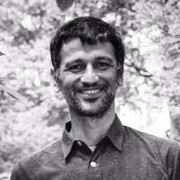
Konstantinos Kourkoutas
Currently the coordinator of the CORE on Smart and Sustainable Cities, a multidisciplinary research cluster of more than 30 research groups, centers and institutes of the UAB sphere, managed through the Research Strategic Development Unit of the Rectorate. He also deals with initiatives impulsing urban open innovation schemes, promotion of quadriple helix schemes, and citizen co-creation and engagement. As well as coordinating questions related to Living Labs and the Campus Living Lab of the UAB. He holds a PhD from the Urbanism Department of the Polytechnic University of Catalunya where he worked in multiple National and European research programs on sustainable urban and regional developement, a Masters Degree in Architecture from UPC as well, and a BS in Civil Engineering from Washington University in St. Louis, USA.
Salvador Rueda
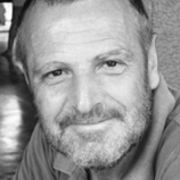
Salvador Rueda
Director of the Urban Ecology Agency of Barcelona since its foundation in 2000. Graduate in Biology and Psychology from the University of Barcelona, Diploma in Environmental Engineering from the Ministry of Industry, Energy, Universities and Research and Diploma in Energy Management from the Polytechnic University from Barcelona. He is an expert in territorial and urban planning and researcher, as well as disseminator, of the urban ecology. He has contributed in the administration and in the academy to the ecological approach of urbanism proposing tools such as superblocks. Likewise, he has developed planning works in strategic and territorial planning, urban green spaces, mobility and urban metabolism (energy, water, air pollution, noise and waste) among others.
Enric Tello
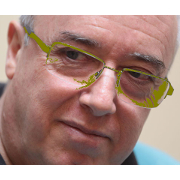
Enric Tello
Doctor in Geography and History, Professor of the Department of Economic History, Institutions, Policy and World Economy of the University of Barcelona (UB). He leads at the UB an interdisciplinary research team on Sustainable Farm Systems (SFS) coordinated with the UPO’s History of Agroecosystems Laboratory in Seville. From 2012 to 2018 both teams have been part of the international SFS project together with the Institute of Social Ecology in Vienna, and several universities in Canada, the United States, Colombia and Cuba. The SFS project has developed new models to evaluate from a circular bioeconomic perspective the degree of dependence on external inputs of agroecosystems, the profiles adopted by energy cycles and nutrients flows that farmers move across the territory, the type of biocultural landscapes that give rise, as well as its capacity to host biodiversity and provide ecosystem services of all kinds to society.
Gara Villalba
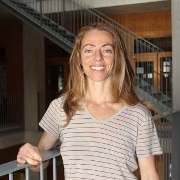
Gara Villalba
Associate professor of the Department of Chemical, Biological and Environmental Engineering of the Autonomous University of Barcelona. Her bachelor’s degree is from the Massachusetts Institute of Technology (1998), and her PhD from the University of Barcelona (2003), both in chemical engineering. Her research is dedicated to the study and optimization of resource metabolism from a systemic approach based on Industrial Ecology tools such as Material Flow Analysis and Life Cycle Analysis. Recent studies focus on analyzing and optimizing the food-energy-water nexus of urban systems. She was recently awarded an ERC Consolidator grant from Horizon 2020 of the European Commission called Integrated System Analysis of Urban Vegetation and Agriculture (2019-2024).
